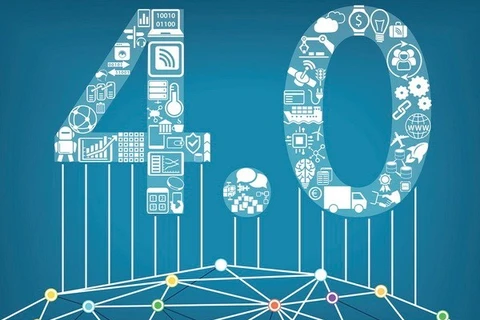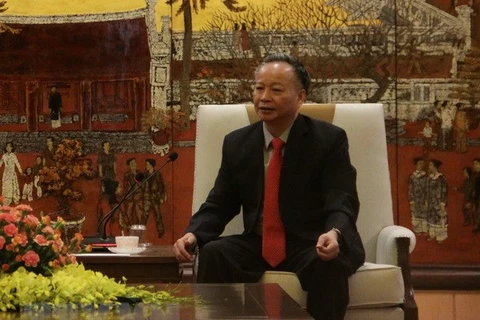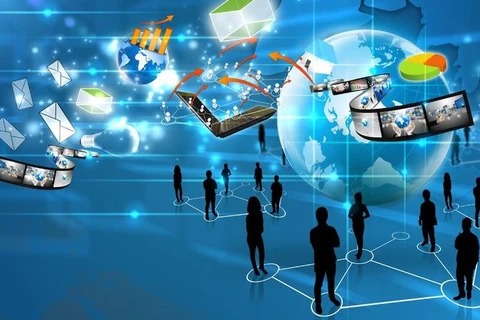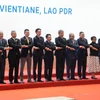Jakarta (VNA) – As information and communications technology (ICT) is revolutionising the way society functions, another significant transformation that ICT is capable of bringing in is the establishment of smart cities.
It was stated in an article entitled “Smart cities: Digital savviness to resilient living” recently run on Jakarta Post.
Smart cities are places where ICT enables people to manage resources efficiently and effectively in order to achieve quality and sustainable living, it said.
According to the article, in recent years, Indonesia has been using ICT more and more in a number of applications. Most notably is the surge of online services for consumers that range from shopping and banking to transportation systems.
The Indonesian government is also tapping into ICT by digitising its interactions with the public through e-public services.
The 2014 presidential decree on the 2014-2019 broadband development plan provides the basis for the country’s ICT development and highlights the centrality of broadband as a critical driver of national development.
For a start, the plan identifies e-government, e-health, e-education, e-logistics and e-procurement as priority areas. In response, Jakarta, Bandung, Surabaya, Makassar and other aspiring smart cities are now adopting ICT-enabled online services.
Meanwhile, in providing services, smart cities go way beyond digital platforms. The Telecommunication Standardization Sector of the International Telecommunication Union points out that ICT will be present in the management of water resources, energy, transportation, environment, waste and housing.
Therefore, smart cities will include smart homes, smart energy and smart buildings. The use of ICT in the management of resources, particularly energy and water, is a welcome development. ICT-enabled systems will be able to match supply to the current demands, therefore reducing waste. It also means that resources will be supplied to places that need them.
A more efficient use of energy and greater utilization of renewable energy sources will lead to the abatement of carbon emissions generated from energy production. The Global e-Sustainability Initiative estimates that smart energy can slash global emissions by about 1.8 gigatons by 2030.
The public works ministry of Indonesia plans to develop smart cities and transit-oriented development in three stages: From 2015 to 2025, it will provide basic public services, including safe drinking water, sanitation services and slum-free residential areas; from 2025 to 2035, it will develop green cities; and from 2035 to 2045, it will develop smart cities.
To create resilient and sustainable living environments, this planning model needs to be replicated in all aspiring smart cities, the article said.-VNA
It was stated in an article entitled “Smart cities: Digital savviness to resilient living” recently run on Jakarta Post.
Smart cities are places where ICT enables people to manage resources efficiently and effectively in order to achieve quality and sustainable living, it said.
According to the article, in recent years, Indonesia has been using ICT more and more in a number of applications. Most notably is the surge of online services for consumers that range from shopping and banking to transportation systems.
The Indonesian government is also tapping into ICT by digitising its interactions with the public through e-public services.
The 2014 presidential decree on the 2014-2019 broadband development plan provides the basis for the country’s ICT development and highlights the centrality of broadband as a critical driver of national development.
For a start, the plan identifies e-government, e-health, e-education, e-logistics and e-procurement as priority areas. In response, Jakarta, Bandung, Surabaya, Makassar and other aspiring smart cities are now adopting ICT-enabled online services.
Meanwhile, in providing services, smart cities go way beyond digital platforms. The Telecommunication Standardization Sector of the International Telecommunication Union points out that ICT will be present in the management of water resources, energy, transportation, environment, waste and housing.
Therefore, smart cities will include smart homes, smart energy and smart buildings. The use of ICT in the management of resources, particularly energy and water, is a welcome development. ICT-enabled systems will be able to match supply to the current demands, therefore reducing waste. It also means that resources will be supplied to places that need them.
A more efficient use of energy and greater utilization of renewable energy sources will lead to the abatement of carbon emissions generated from energy production. The Global e-Sustainability Initiative estimates that smart energy can slash global emissions by about 1.8 gigatons by 2030.
The public works ministry of Indonesia plans to develop smart cities and transit-oriented development in three stages: From 2015 to 2025, it will provide basic public services, including safe drinking water, sanitation services and slum-free residential areas; from 2025 to 2035, it will develop green cities; and from 2035 to 2045, it will develop smart cities.
To create resilient and sustainable living environments, this planning model needs to be replicated in all aspiring smart cities, the article said.-VNA
VNA























